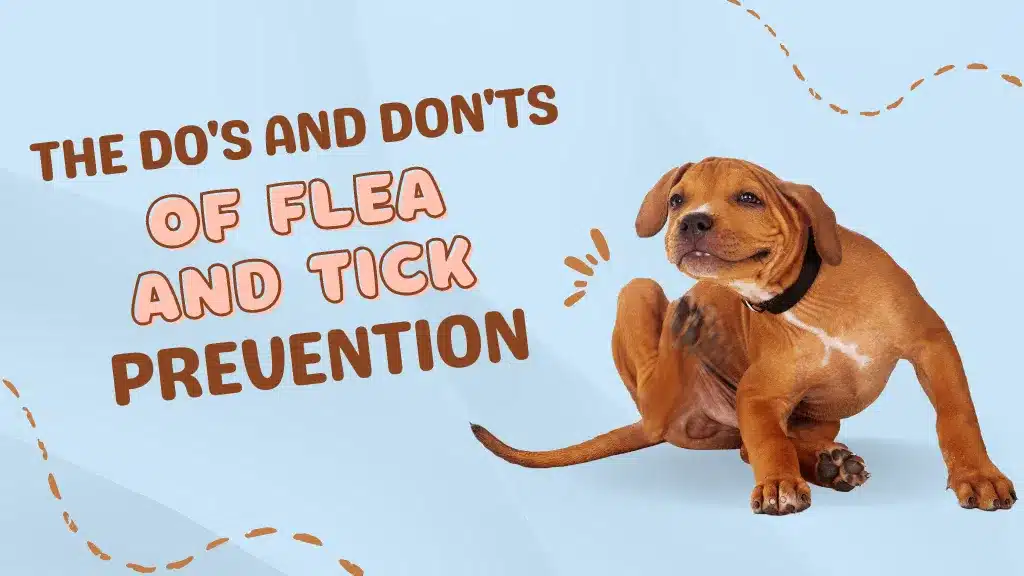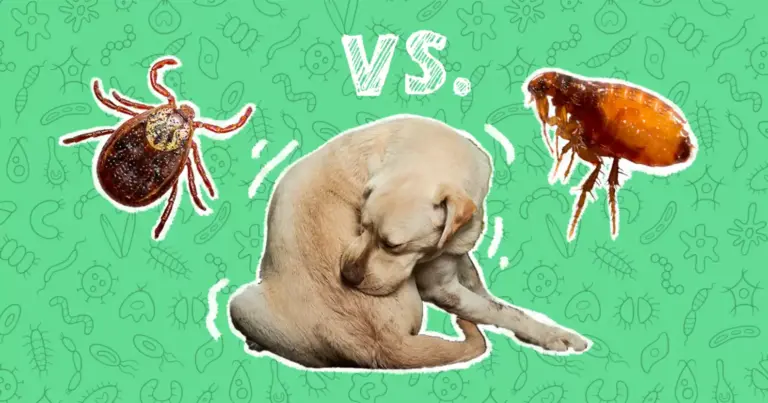Pets, especially dogs, can be infested by various external parasites, which can seriously endanger their health. The most common external parasites in dogs are fleas, ticks, lice, and mites. It is crucial to be aware and take necessary precautions to protect dogs from the negative effects these parasites can have on them. fleas and ticks in dogs
Fleas and Their Impact on Dogs
Fleas are small parasites that threaten the health of dogs. They not only cause itching but can also carry and transmit many diseases to your canine friends. In some cases, fleas can also pose a threat to humans. Therefore, it is essential to protect your dogs from fleas.
Characteristics of Fleas
Fleas are small parasites that feed on the blood of mammals. Their bodies are adapted to move through the fur of their hosts, and they cannot fly as they lack wings. Fleas have flat, hard bodies and legs designed to jump long distances. Their jaws are specially adapted for sucking blood. fleas and ticks in dogs
- Habitat: Fleas typically live in the fur of pets. Cats, dogs, mice, and rabbits are ideal hosts for fleas. While they can bite humans, humans are not ideal hosts for fleas.
- Reproduction: Fleas are known for their rapid reproduction capabilities. Female fleas can lay thousands of eggs in their lifetime, and these eggs quickly develop into larvae and then into new fleas.
Dangers of Fleas
- Allergic Reactions: Flea bites can cause severe itching in dogs. Continuous scratching can lead to skin irritation and wounds. Dogs with sensitive skin may also develop fungal and similar infections.
- Tapeworm Carrier: Fleas can ingest tapeworm larvae. These larvae can develop into tapeworms when ingested by dogs or humans, leading to serious intestinal problems.
- Anemia: Fleas can cause significant blood loss and anemia in dogs. A large number of fleas can lead to severe blood loss in your dog, endangering their health and potentially leading to death if untreated.

Flea Treatment and Prevention Methods
Treating and preventing fleas is vital for your dog’s health.
- Cleaning the Environment: Regularly wash or replace your dog’s bedding, blankets, and clothing to prevent flea infestation. Vacuum carpets, furniture, and other areas frequently to remove flea eggs and larvae.
- Flea and Tick Preventative Products:
- Flea Drops: Veterinarian-recommended flea-killing drops are applied to your dog’s fur, killing fleas and preventing new infestations.
- Flea Shampoos: Flea-killing and preventative shampoos help remove fleas while bathing your dog and prevent new flea infestations.
- Flea Collars: Flea and tick collars provide long-term protection, preventing fleas from living on and breeding on your dog. fleas and ticks in dogs
- Natural Flea Repellents: Natural flea repellent powders and sprays are good alternatives for pet owners who prefer to avoid chemicals. These products, applied to your dog’s fur, help prevent flea infestations.
Ticks and Their Impact on Dogs
Ticks are dangerous parasites that can cause serious diseases in dogs. They are commonly found on the ears, neck, and skin folds of dogs. Regularly checking these areas is essential.
Characteristics and Dangers of Ticks
- Identifying Ticks: If you notice any bumps or lumps on your dog’s skin, carefully inspect the area for ticks. Ticks are usually the size of a pencil tip and cling tightly to the skin.
- Disease Carriers: Ticks can transmit serious diseases such as Lyme disease, babesiosis, and anaplasmosis. These diseases can severely jeopardize your dog’s health and require immediate veterinary intervention.
- Tick Removal: When ticks are removed, they can leave their jaws behind, which can carry diseases. It is safest to have a veterinarian remove the tick. Alternatively, you can clean the area with alcohol and use a tick removal tool to gently remove the tick. However, this method is risky. fleas and ticks in dogs
Tick Prevention Methods
To protect your dog from ticks, consider these methods:
- Medicated Tick Collars: Using medicated tick collars is the most effective way to prevent ticks from infesting your dog. These collars keep ticks away from your dog, minimizing the risk of disease.
- Tick Preventative Drops: Veterinarian-recommended tick preventative drops applied to your dog’s fur can prevent ticks from attaching to your dog.
- Tick Sprays: Tick sprays applied to your dog’s fur help keep ticks away, making them especially useful for dogs that spend a lot of time outdoors.
- Regular Checks: Regularly check your dog’s body to detect and remove ticks early. This helps prevent the spread of diseases carried by ticks.
Conclusion
Regularly checking for and preventing fleas and ticks is essential for maintaining your dog’s health. Use appropriate treatment methods and preventative products to protect your dog from the serious health issues these parasites can cause. Don’t neglect regular veterinary check-ups and stay informed about parasite prevention. fleas and ticks in dogs

